38 what set of recommendations can be found on food labels
Chapter 2: Using Dietary Recommendations, Food Guides, and Food Labels ... A food guide developed by the US Department of Agriculture as a guide to the amounts of different types of foods needed to provide an adequate diet and comply with current nutrition recommendations. Whole Grains Grains and grain products made from the entire grain seed, usually called the kernel, which consists of the bran, germ, and endosperm. Food Product Dating | Food Safety and Inspection Service 1 The U.S. Food and Drug Administration requires a "use by" date on infant formula.The U.S. Department of Agriculture (USDA) does not require quality or food safety date labels for products under its purview. However, the USDA does require a "pack date" for poultry products and thermally processed, commercially sterile products to help identify product lots and facilitate trace-back ...
How to Read Food Labels - AANMC Labels list the caloric and nutritional information based on one serving size, which may be a fraction of what is in the container, and frequently less than what the average person may consume. For example, one serving size might be half of a candy bar or half a can of soda, but most people will consume all of it in one sitting.

What set of recommendations can be found on food labels
Food Labels (for Teens) - Nemours KidsHealth A food with 10%-19% of a nutrient is a good source of that nutrient. A food with 20% or more of a nutrient is high in that nutrient. The information on food labels is based on an average adult diet of 2,000 calories per day. The actual number of calories and nutrients that kids need will depend on their age, weight, gender, and level of ... How to Read Food Labels: Your Complete Consumer Guide Companies are also required to include a set of nutrition facts, including calories, serving size, macronutrient content, added sugars, sodium, and a bunch of vitamins and minerals. They must also include a list of ingredients, ordered by weight. Solved 1. A closer look - Nutrition standards and | Chegg.com The Dietary Reference Intakes (DRIs) are a set of nutrition recommendations for healthy people in the United States and Canada aimed at reducing the risk of chronic disease and promoting optimal health. The DRIs for most nutrients consist of four main values. The energy-containing nutrients use different standards, including two main values.
What set of recommendations can be found on food labels. Food Labeling & Nutrition | FDA Food labeling is required for most prepared foods, such as breads, cereals, canned and frozen foods, snacks, desserts, drinks, etc. Nutrition labeling for raw produce (fruits and vegetables) and... Label Claims for Food & Dietary Supplements | FDA Among the claims that can be used on food and dietary supplement labels are three categories of claims that are defined by statute and/or FDA regulations: health claims, nutrient content claims,... Food labels - Better Health Channel On food labels, the ingredient list must contain all ingredients including those that make up compound ingredients. For example, chocolate chip ice-cream lists the ingredients that make up ice-cream, but it also contains chocolate, so the ingredients that make up chocolate are listed too (cocoa, cocoa butter, sugar). Chapter 2- Tools for Healthy Eating Flashcards | Quizlet Recommendations that are published every five years to provide dietary and lifestyle advice to individuals aged 2 and older in order to maintain good health and prevent chronic diseases can be found in the Dietary Guidelines for Americans. The amount of nutrients per calorie in a given food represents how ________ the food is. nutrient-dense
How to understand food labels | Eat For Health The Nutrition Information Panel on a food label offers the simplest and easiest way to choose foods with less saturated fat, salt (sodium), added sugars and kilojoules, and more fibre. It can also be used to decide how large one serve of a food group choice or discretionary food would be and whether it's worth the kilojoules. Food Marketing and Labeling - Johns Hopkins University Food labeling. People rely on food labels to tell them what a product contains, its nutritional value, and how it was produced. For example, shoppers may look for products labeled "organic," "no trans fats," or "antibiotic-free," or may want to know about animal welfare standards or fair labor practices. Daily Value on the New Nutrition and Supplement Facts Labels The Nutrition Facts label must list total fat, saturated fat, trans fat, cholesterol, sodium, total carbohydrate, dietary fiber, total sugars, added sugars, protein, and certain vitamins and... How to Understand and Use the Nutrition Facts Label | FDA - U.S. Food ... Dietary fiber, vitamin D, calcium, iron ad potassium are nutrients on the label that Americans generally do not get the recommended amount of. They are identified as nutrients to get more of....
New Food Labels Reflect How Much We Really Eat | HuffPost Life The hope to help us make healthier--and more informed--food choices. As a nutritionist and portion size researcher, I applaud the changes. Here are some of the changes you can expect to see. 1. Serving sizes will reflect how much we really eat. As I wrote in my book The Portion Teller Plan and research articles, we are eating more--often lots ... Guidance for Industry: Food Labeling: Serving Sizes of Foods That Can ... Many answers in this guidance are followed by citations to show where a specific requirement can be found in either the Federal Food, Drug, and Cosmetic Act (FD&C Act) or Title 21 of the Code of... USDA ERS - Food Labeling Manufacturers with $10 million or more in annual sales were required to switch to the new label by January 1, 2020; manufacturers with less than $10 million in annual food sales had until January 1, 2021 to comply. Future research can investigate whether the changes improved the diet quality of U.S. consumers. How to Read Food Labels - Introduction to Food Label Claims All food labels must include the following: Name of the food Net quantity of contents Name and location of the business List of ingredients if the food is comprised of more than one ingredient Nutrition Fact Label (for packaged products sold at retail)
Food Labeling: Revision of the Nutrition and Supplement Facts Labels ... The final rule, which is codified at 21 CFR 101.9, 101.30, and 101.36, became effective July 26, 2016, and set a compliance date of July 26, 2018, for manufacturers with $10 million or more in annual food sales, and July 26, 2019, for manufacturers Start Printed Page 6046 with less than $10 million in annual food sales.
Food Labels Guide & Examples | How to Read Nutrition Labels - Video ... Some of the sections found on all current nutrition facts labels are: Servings per container and serving sizes Calories per serving Amounts of fat, cholesterol, sodium, carbohydrates (including...
How To Read Food and Beverage Labels - National Institute on Aging If a food has 5% DV or less of a nutrient per serving, it is considered low in that nutrient. If it has 20% DV or more of a nutrient per serving, it is considered high in that nutrient. Low or high can be either good or bad — it depends on whether you need more of a nutrient (like dietary fiber) or less (like saturated fat).
PRACTICE CH 2 Flashcards | Quizlet Study with Quizlet and memorize flashcards containing terms like The recommendations: "Focus on variety, nutrient density, and amount" and "Limit calories from added sugars and saturated fats and reduce sodium intake" are components of, Recommendations that are published every five years to provide dietary and lifestyle advice to individuals aged 2 and older in order to maintain good health ...
Understanding Food Nutrition Labels | American Heart Association When the Nutrition Facts label says a food contains "0 g" of trans fat, but includes "partially hydrogenated oil" in the ingredient list, it means the food contains some trans fat, but less than 0.5 grams per serving. So, if you eat more than one serving, you could end up eating too much trans fat.
Food Labels | CDC - Centers for Disease Control and Prevention If you eat the whole thing, you are eating 8 times the amount of calories, carbs, fat, etc., shown on the label. Total Carbohydrate shows you types of carbs in the food, including sugar and fiber. Choose foods with more fiber, vitamins, and minerals. Choose foods with lower calories, saturated fat, sodium, and added sugars. Avoid trans fat.
Things that MUST be on a Food Label - MenuSano Peanuts. Sesame. Soybean. Sulphur dioxide. Sulphites. Tree nuts. On food labels specifically, it must be indicated whether or not a food product was manufactured in the same factory where it could potentially be cross-contaminated with one of these major allergens, even if the food product itself does not contain it.
The Effects of Nutrition Knowledge on Food Label Use: A Review of the ... We draw on the cognitive science literature to illustrate how knowledge could support food label use. In particular, we assume that food label use relies on a set of interrelated processes centered on comprehension: attention, comprehension and memory, and decision making (see shaded portion of Figure 1). Consumers pay attention to information ...
Understanding Food Labels | The Nutrition Source | Harvard T.H. Chan ... Under the Food Allergen Labeling and Consumer Protection Act of 2004, eight major food allergens—milk, fish, tree nuts, peanuts, shellfish, wheat, eggs, and soybeans—are required to be listed in a "contains" statement near the Ingredients list if present in a food. An example would be "contains wheat, milk, and soy."
Label: FAQs - Food label Where can I find information about the RIs for all the nutrients? The RIs for the mandatory nutrients can be found on the 'Reference Intakes' page of this website. Front of pack labels FAQs. Why do the labels include percentages? The percentages are given on the label to help put the nutrition information in the context of a balanced diet.
Chapter 2: Nutrition Guidelines (Wiley Questions) - Quizlet The Nutrition Facts label on food products provides stated amounts of nutrients based on A: similar serving sizes for all food products. ... The 1977 Dietary Goals for the United States were the first set of recommendations that addressed health promotion in addition to resolving nutrient deficiencies. ... Sets found in the same folder.
FSHN150: Chapter 2: Designing a Healthy Eating Pattern - choosing foods from various food groups. portion size -- the amount of food eaten in one sitting serving size -- found on the food label and is used to help you determine an appropriate serving size. Choose the best def. for each term. portion size - serving size - - the amount of food eaten in one sitting

144 Fine Line Pantry Organization Labels for Food Storage Containers, Preprinted Black All Caps on Matte White Vinyl Household Stickers + Numbers for ...
Solved 1. A closer look - Nutrition standards and | Chegg.com The Dietary Reference Intakes (DRIs) are a set of nutrition recommendations for healthy people in the United States and Canada aimed at reducing the risk of chronic disease and promoting optimal health. The DRIs for most nutrients consist of four main values. The energy-containing nutrients use different standards, including two main values.
How to Read Food Labels: Your Complete Consumer Guide Companies are also required to include a set of nutrition facts, including calories, serving size, macronutrient content, added sugars, sodium, and a bunch of vitamins and minerals. They must also include a list of ingredients, ordered by weight.
Food Labels (for Teens) - Nemours KidsHealth A food with 10%-19% of a nutrient is a good source of that nutrient. A food with 20% or more of a nutrient is high in that nutrient. The information on food labels is based on an average adult diet of 2,000 calories per day. The actual number of calories and nutrients that kids need will depend on their age, weight, gender, and level of ...


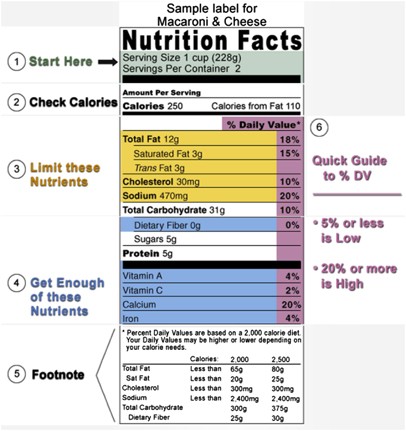
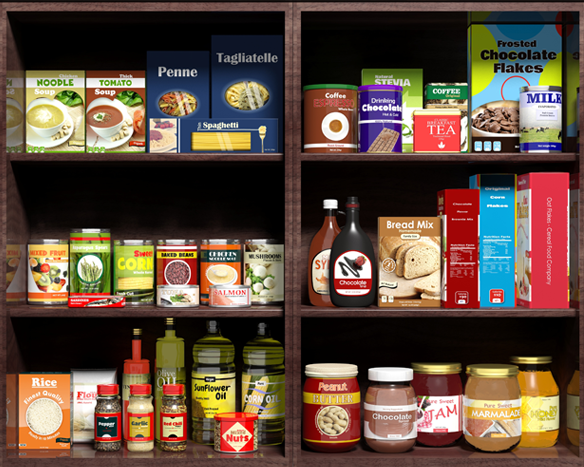



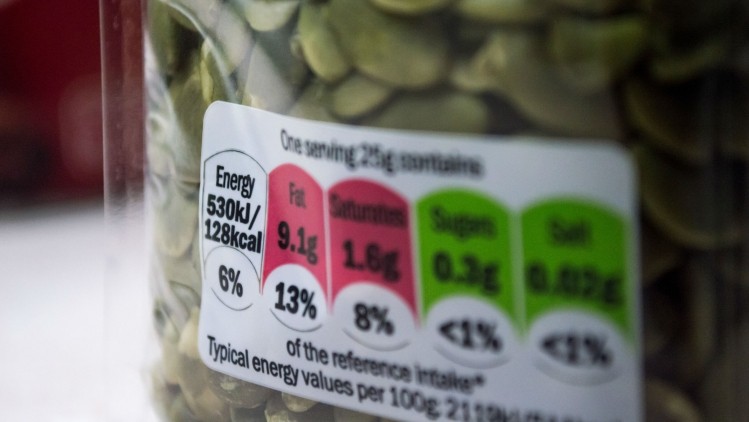


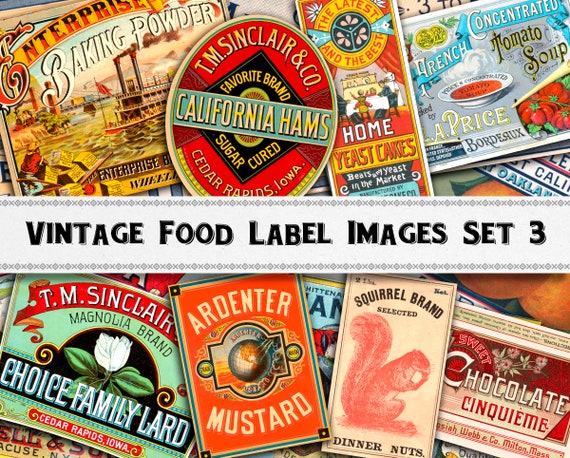


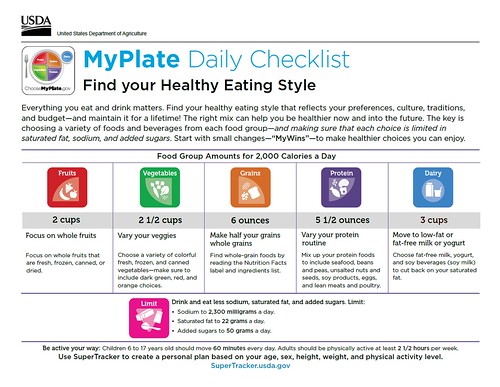
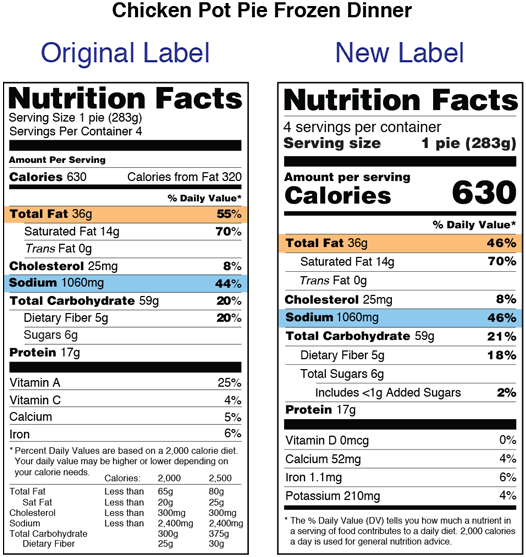

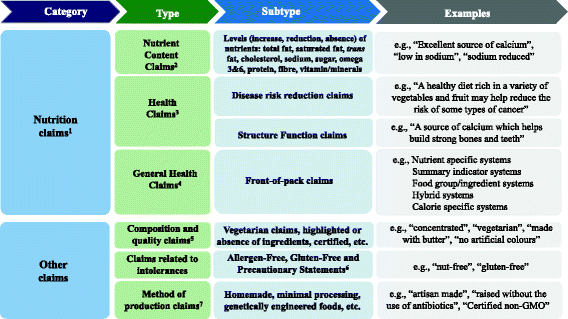


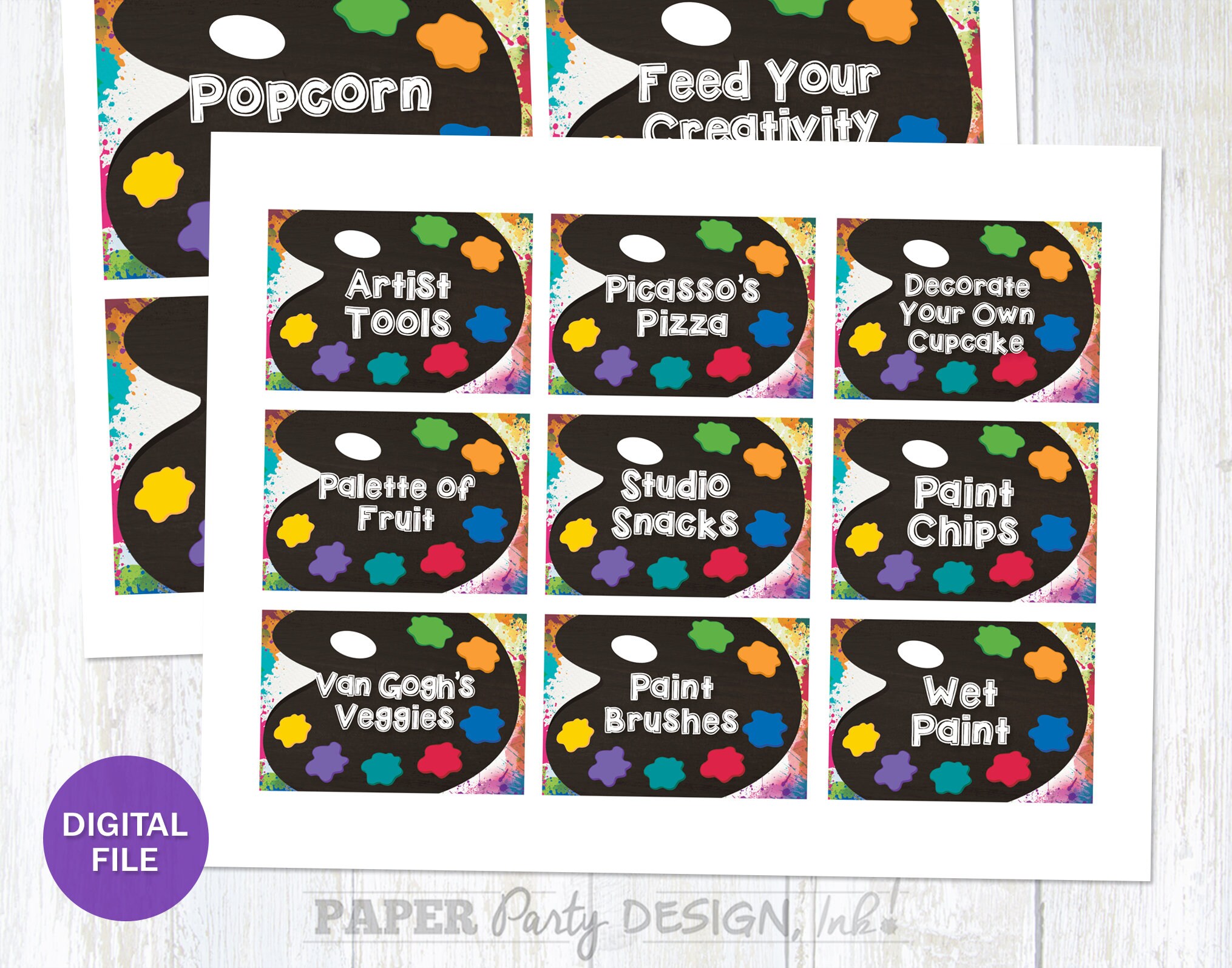
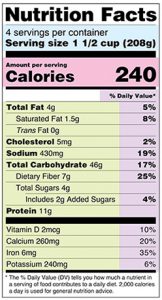







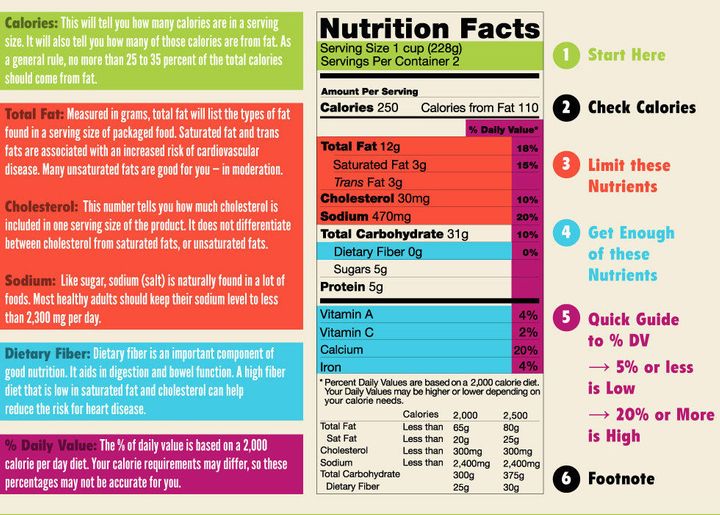
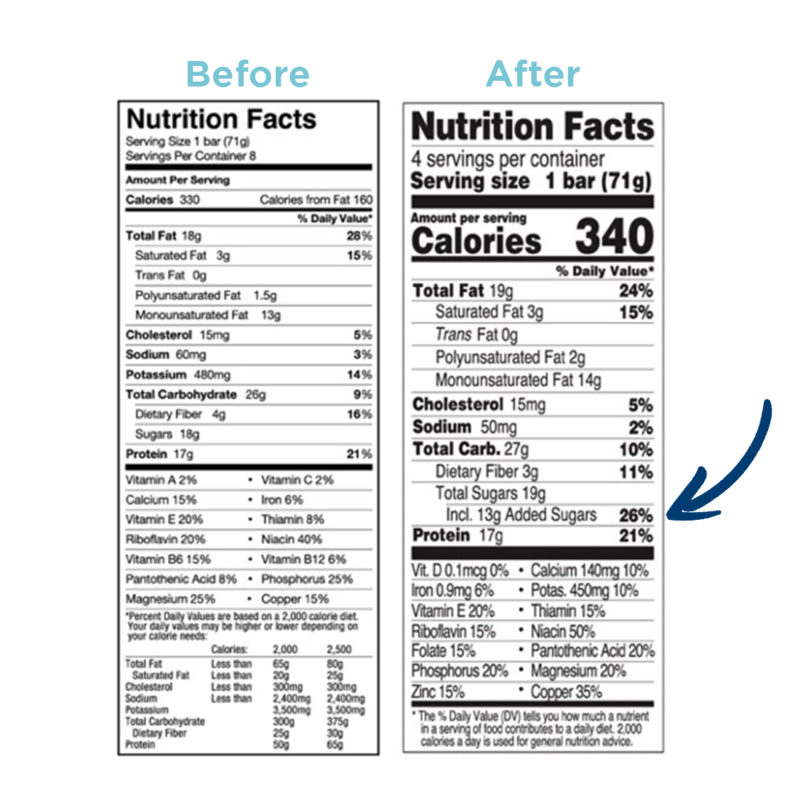

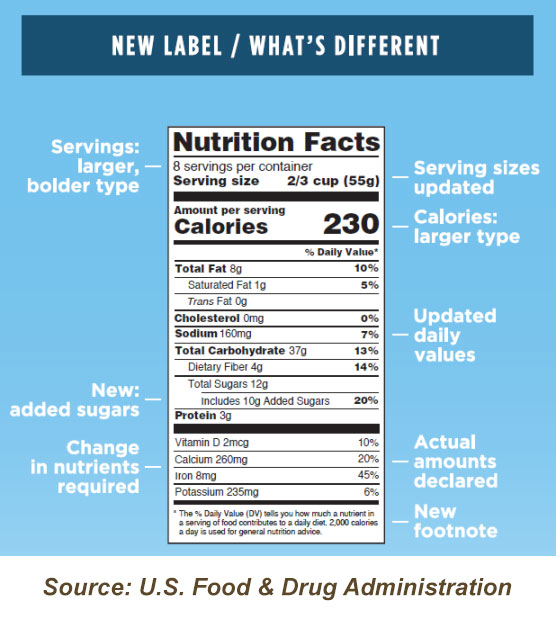
Post a Comment for "38 what set of recommendations can be found on food labels"